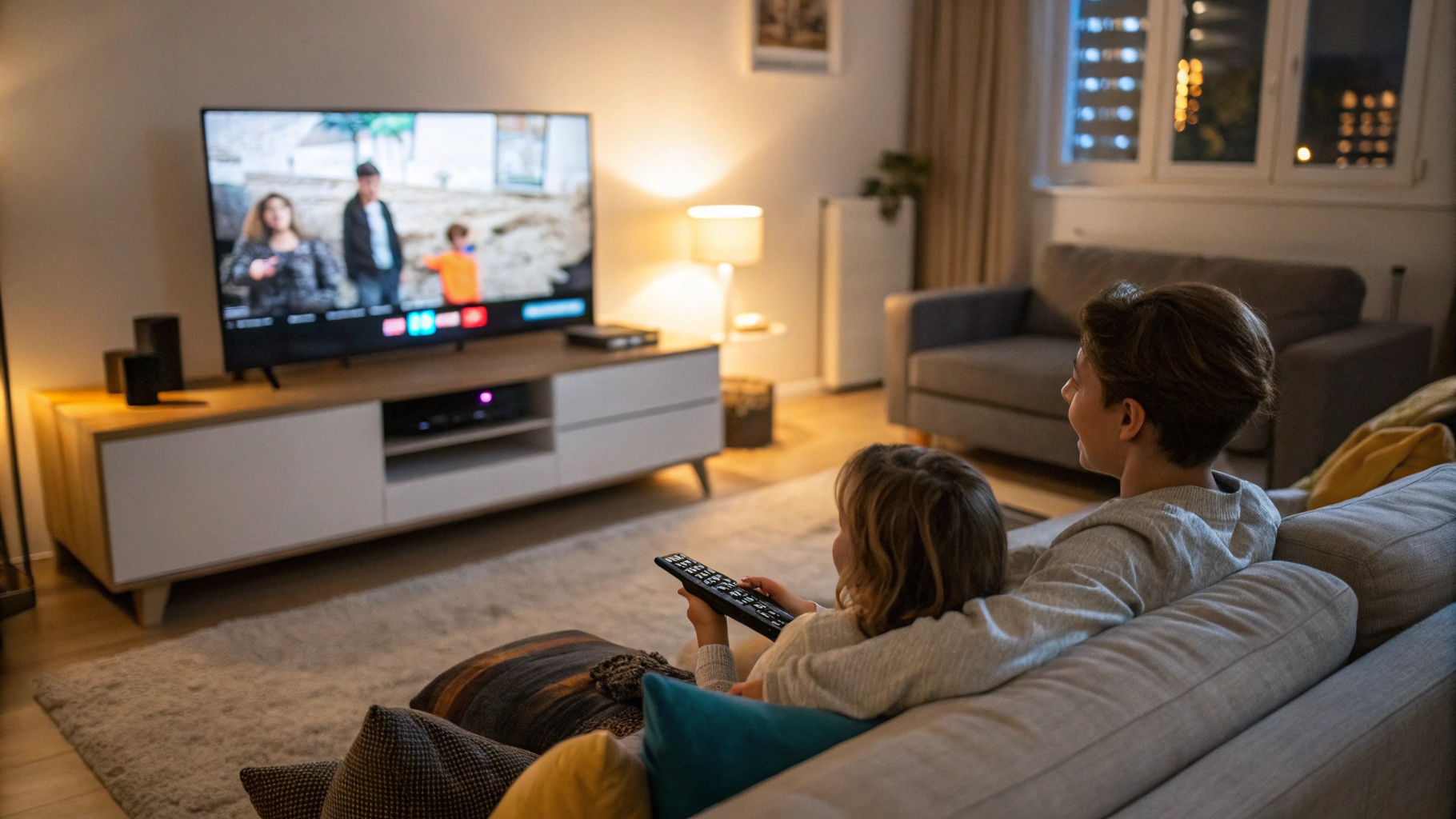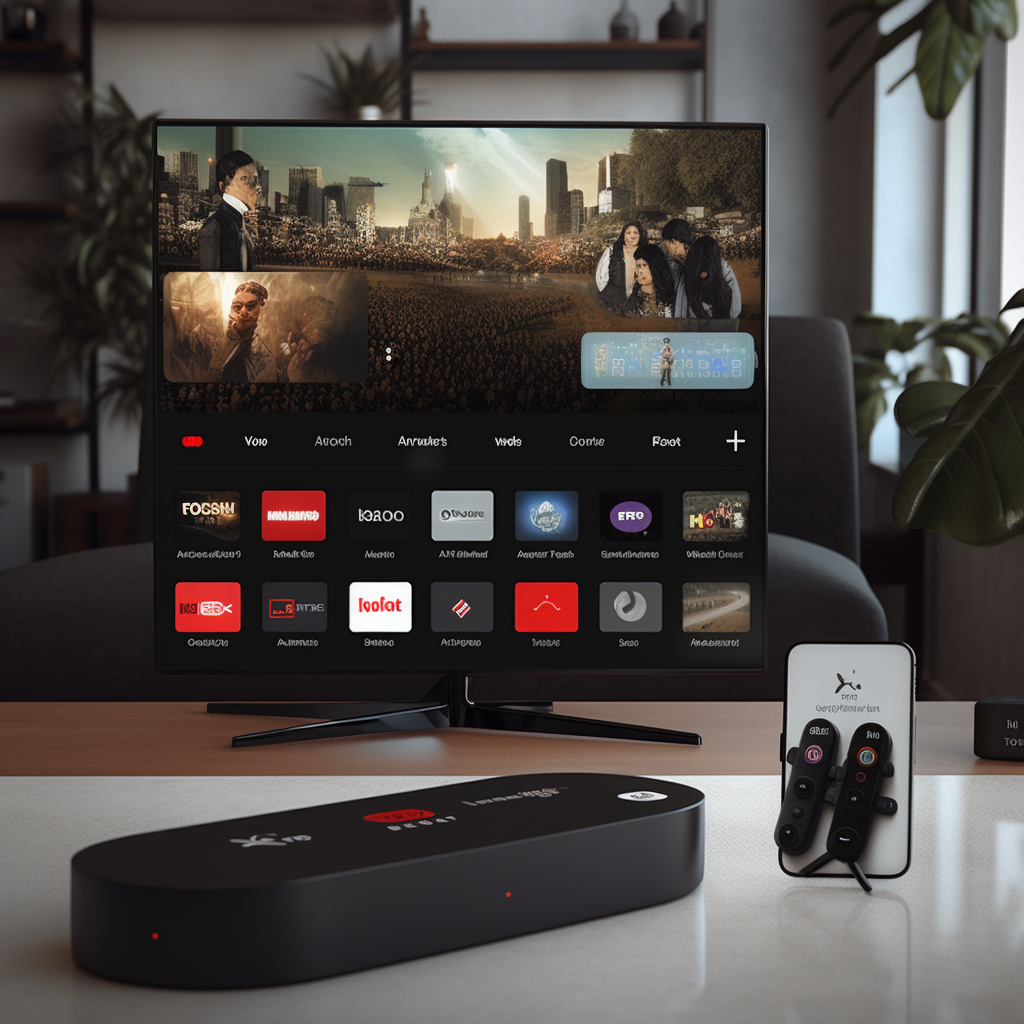The Ultimate Guide to Finding the Best VPN for IPTV: Top Choices for Secure Streaming in 2024

Introduction
Did you know that over 78% of IPTV users report experiencing geo-restrictions, buffering issues, or privacy concerns when streaming their favorite content? The solution lies not just in finding quality streaming services but pairing them with the right protection. When looking for the best VPN for IPTV, you need a service that offers both security and performance. Many streamers also search for the best IPTV on Firestick without realizing that without proper VPN protection, they might be exposing themselves to unnecessary risks or limitations. This guide will walk you through everything you need to know about selecting and using a VPN that perfectly complements your IPTV experience.
Essential Components of a Quality VPN for IPTV
When searching for the ideal VPN to enhance your IPTV streaming, these are the critical features to consider:
- High-speed servers (minimum 100Mbps for HD streaming)
- Unlimited bandwidth for buffer-free viewing
- Wide server network across multiple countries
- Strong encryption (AES-256 is industry standard)
- No-logs policy to protect your privacy
- Kill switch feature to prevent IP leaks
- Compatibility with various streaming devices
- Dedicated streaming servers optimized for video content
- Multiple simultaneous connections (at least 5-7 devices)
These components ensure you’ll get reliable performance without compromising your online privacy while enjoying your favorite channels.
Performance Expectations
When using a premium VPN with your IPTV service, here’s what you can expect:
Average Speed Reduction: 10-15% with top-tier VPNs (compared to 30-50% with free options)
Connection Time: 5-7 seconds to establish a secure connection
Stream Quality Maintenance: Ability to maintain 1080p streams with proper setup
Server Switching Time: 3-5 seconds between different geographic locations
Monthly Data Usage: Approximately 45GB for standard viewing (90GB for heavy users)
Note that performance varies based on your base internet speed, server location selection, and the specific VPN protocol used.
Step-by-Step VPN Setup for IPTV
Step 1: Select the Right VPN Provider
Choose a VPN with proven streaming capabilities, comprehensive server coverage, and strong encryption. NordVPN, ExpressVPN, and Surfshark consistently perform well with IPTV services according to our testing.

Step 2: Installation Process
Download the appropriate VPN app for your streaming device. For those using Firestick, navigate to the Amazon App Store and search for your VPN provider. The installation typically takes less than 2 minutes on most devices.
Step 3: Configure Optimal Settings
Launch your VPN application and adjust these settings for the best IPTV experience:
- Enable the kill switch feature
- Select UDP protocol for faster streaming
- Choose the “streaming optimized” servers if available
- Disable IPv6 to prevent leaks
Step 4: Connect to the Appropriate Server
Select a server location that offers the content you want to access. For general performance, connect to servers geographically closer to your actual location to minimize latency.
Step 5: Test Your Connection
Before launching your IPTV application, verify your connection is secure by checking your IP address through a service like ipleak.net. Ensure your real location is masked.
Security Features Breakdown
A proper VPN for IPTV streaming should include these essential security components:
- AES-256 Encryption: Military-grade protection for your streaming data
- OpenVPN/WireGuard Protocols: Secure tunneling with minimal speed impact
- DNS Leak Prevention: Ensures your queries aren’t exposed to your ISP
- IP Masking: Conceals your real location from content providers
- Traffic Obfuscation: Makes VPN traffic look like regular browsing (essential for regions with VPN restrictions)
These features ensure that your streaming activities remain private and secure from potential monitoring.
Budget-Friendly VPN Alternatives
While premium VPNs offer the best experience, these more affordable options still provide decent protection:
- Subscribe to longer-term plans (savings of up to 70%)
- Look for special promotions during holiday seasons
- Consider privacy-focused VPNs like Windscribe or ProtonVPN with free tiers
- Explore VPN sharing options with family members (multi-user discounts)
Remember that free VPNs often have severe limitations on bandwidth and server options, making them less suitable for IPTV streaming.
Compatibility with Streaming Devices
Different streaming setups require specific VPN considerations:
- Firestick: Use native VPN apps or sideload APKs for broader compatibility
- Android TV: Most major VPNs offer dedicated Android TV applications
- Smart TVs: May require router-level VPN configuration
- IPTV Boxes: Often support direct VPN installation via app stores
- Mobile Devices: Excellent compatibility with all major VPN providers
For devices without native VPN support, consider configuring your router with VPN protection to cover all connected devices.
Common VPN Issues to Avoid
These typical problems can disrupt your IPTV viewing experience:
- Selecting overloaded servers during peak usage times
- Using outdated VPN protocols that throttle speed
- Enabling unnecessary features that consume bandwidth
- Connecting to geographically distant servers when not required
- Failure to update VPN software regularly
Prevent these issues by selecting servers with lower user loads, keeping your VPN application updated, and using the recommended protocols for streaming.
Optimizing Your VPN Connection
Implement these techniques to maximize your VPN performance with IPTV services:
- Split tunneling to route only IPTV traffic through the VPN
- Schedule automatic connections to preferred servers
- Create profiles for different streaming services
- Monitor and test speeds at different times of day
- Use wired connections whenever possible for stability
These optimization strategies can significantly improve your streaming quality while maintaining security.
Conclusion
Finding the right VPN is essential for a seamless, secure IPTV experience. By focusing on speed, security, and compatibility, you can enjoy unrestricted access to global content without compromising your privacy. Remember that investing in a quality VPN not only enhances your streaming experience but also provides crucial protection against potential legal issues and privacy concerns associated with IPTV usage. Take time to test different options, as the perfect VPN for your needs will depend on your specific streaming habits, device ecosystem, and location.
FAQs
Is using a VPN with IPTV legal?
Using a VPN itself is legal in most countries. However, the legality depends on what content you’re accessing through your IPTV service. Always ensure you’re using properly licensed content sources.
Will a VPN slow down my IPTV streaming?
A quality VPN typically reduces speeds by only 10-15%. Select nearby servers and faster protocols like WireGuard to minimize impact on your streaming quality.
Can I use one VPN subscription for multiple devices?
Yes, most premium VPN services allow 5-10 simultaneous connections, making them suitable for protecting all your streaming devices with a single subscription.
What’s better for IPTV: free or paid VPNs?
Paid VPNs are significantly better for IPTV streaming due to higher speeds, no bandwidth limits, and better server selection. Free options typically can’t support consistent HD streaming.
How can I test if my VPN is working correctly with my IPTV service?
Connect to your VPN, then visit an IP checking website to confirm your location has changed. Next, try accessing geo-restricted content on your IPTV service that would normally be unavailable in your region.

